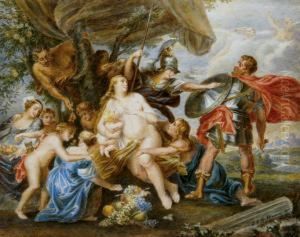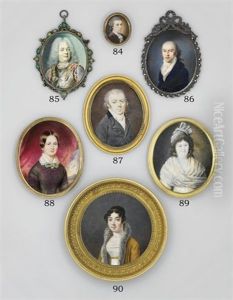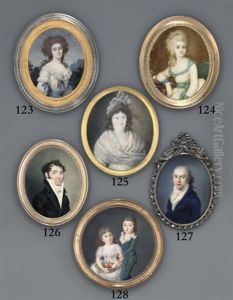Johann Friedrich Tielker Paintings
Johann Friedrich Tielker was a German artist and craftsman born in 1763, known particularly for his work in the field of decorative ironwork. His contributions to art and design during the late 18th and early 19th centuries were significant, particularly in the context of the burgeoning Romantic movement that swept through Europe, influencing various forms of artistic expression.
Tielker's work was characterized by its intricate designs and the high level of skill evident in his iron creations. During a time when the industrial revolution was beginning to take shape, Tielker managed to blend traditional craftsmanship with emerging trends in design and aesthetics. His creations ranged from ornamental garden pieces to architectural elements, including gates, grilles, and balustrades, which were admired for their elaborate patterns and the delicate interplay of form and function.
Despite the industrial advancements of his time, Tielker remained committed to handcrafted artistry, setting his work apart from the mass-produced items that were becoming increasingly common. His dedication to craftsmanship and quality not only earned him recognition among his contemporaries but also ensured that his work would be celebrated in the years to follow.
Throughout his career, Johann Friedrich Tielker was an influential figure in the decorative arts, contributing to the development of Romanticism in Germany. His legacy is preserved in the enduring beauty and craftsmanship of his ironworks, which continue to be appreciated by art historians and enthusiasts alike. Tielker passed away in 1832, leaving behind a body of work that remains a testament to his skill and artistic vision.


